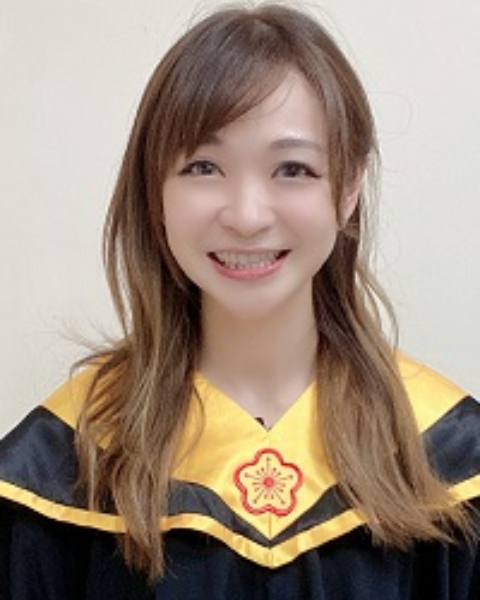PQA 08 - PQA 08 Genitourinary Cancer, Patient Safety, and Nursing/Supportive Care Poster Q&A
3218 - Decoding Cancer Radiotherapy Discontinuation: A Comprehensive Analysis
Tuesday, October 1, 2024
2:30 PM - 3:45 PM ET
Location: Hall C
Screen: 26

Huei Fang Yang, BS, RN
Chung Shan Medical University Hospital
Taichung, Taichung
Presenter(s)
H. F. Yang1,2, Y. C. Lee2,3, H. M. Chan1,2, Y. F. Ke1,2, P. F. Tsai1,2, and Y. C. Huang1,2; 1Department of Nursing, Chung Shan Medical University Hospital, Taichung, Taiwan, 2Department of Radiation Oncology, Chung Shan Medical University Hospital, Taichung, Taiwan, 3School of Medicine, Chung Shan Medical University, Taichung, Taiwan
Purpose/Objective(s): Despite advancements in cancer treatment, challenges persist in completing radiotherapy, impacting patients quality of life. This study aims to address this gap by analyzing factors contributing to treatment discontinuation and proposing strategies for improving patient adherence. Materials/
Methods: Between January 2019 and September 2023, 846 patients from Chung Shan Medical University Hospitals Radiation Oncology Department, who did not complete full radiotherapy, were investigated. A mixed-methods approach, including narratives, medical record reviews, and follow-up interviews, was employed to gain a comprehensive understanding of challenges faced by these patients.
Results: Factors influencing treatment discontinuation include Patient Autonomy (18.9%), Seeking Alternative Medical Solutions (1.4%), Family Care Responsibilities (0.6%), External Factors (0.1%), Remote Location and Transportation Challenges (1.3%), Weather Events (0.6%), Side Effects (52%), Complications from Cancer (6%), Changes in Treatment Approach (8.4%), Equipment Malfunction (1.7%), Changes in Treatment Plan (2.5%), Cancer-Related Non-Complication Factors (0.2%), and Non-Cancer-Related Complications (6.3%). This breakdown provides insights into the diverse factors influencing treatment discontinuation, highlighting the complex nature of patients experiences during radiotherapy.
Conclusion: The study recommends an innovative patient education approach, incorporating audiovisual materials and QR codes, to enhance self-care awareness and understanding of radiotherapy. Healthcare professionals should broaden their focus beyond clinical aspects, addressing side effects and complications leading to treatment discontinuation. Early and comprehensive patient education is crucial, especially considering some patients reliance on alternative therapies. Family cooperation plays a vital role in supporting patients throughout their treatment journeys. Early implementation of personalized nursing health education can significantly enhance the patient experience. Multidisciplinary care, including continuous nutrition monitoring and home follow-up, is crucial for better control and survival rates during continuous radiotherapy. A detailed analysis of reasons for treatment discontinuation provides insights to help patients navigate their treatment journeys more smoothly. Further research and interventions should delve into specific patient needs and aim to enhance overall treatment adherence. The proposed adjustments in patient education aim to empower patients, foster self-care awareness, and contribute to a more successful treatment experience.
Purpose/Objective(s): Despite advancements in cancer treatment, challenges persist in completing radiotherapy, impacting patients quality of life. This study aims to address this gap by analyzing factors contributing to treatment discontinuation and proposing strategies for improving patient adherence. Materials/
Methods: Between January 2019 and September 2023, 846 patients from Chung Shan Medical University Hospitals Radiation Oncology Department, who did not complete full radiotherapy, were investigated. A mixed-methods approach, including narratives, medical record reviews, and follow-up interviews, was employed to gain a comprehensive understanding of challenges faced by these patients.
Results: Factors influencing treatment discontinuation include Patient Autonomy (18.9%), Seeking Alternative Medical Solutions (1.4%), Family Care Responsibilities (0.6%), External Factors (0.1%), Remote Location and Transportation Challenges (1.3%), Weather Events (0.6%), Side Effects (52%), Complications from Cancer (6%), Changes in Treatment Approach (8.4%), Equipment Malfunction (1.7%), Changes in Treatment Plan (2.5%), Cancer-Related Non-Complication Factors (0.2%), and Non-Cancer-Related Complications (6.3%). This breakdown provides insights into the diverse factors influencing treatment discontinuation, highlighting the complex nature of patients experiences during radiotherapy.
Conclusion: The study recommends an innovative patient education approach, incorporating audiovisual materials and QR codes, to enhance self-care awareness and understanding of radiotherapy. Healthcare professionals should broaden their focus beyond clinical aspects, addressing side effects and complications leading to treatment discontinuation. Early and comprehensive patient education is crucial, especially considering some patients reliance on alternative therapies. Family cooperation plays a vital role in supporting patients throughout their treatment journeys. Early implementation of personalized nursing health education can significantly enhance the patient experience. Multidisciplinary care, including continuous nutrition monitoring and home follow-up, is crucial for better control and survival rates during continuous radiotherapy. A detailed analysis of reasons for treatment discontinuation provides insights to help patients navigate their treatment journeys more smoothly. Further research and interventions should delve into specific patient needs and aim to enhance overall treatment adherence. The proposed adjustments in patient education aim to empower patients, foster self-care awareness, and contribute to a more successful treatment experience.
